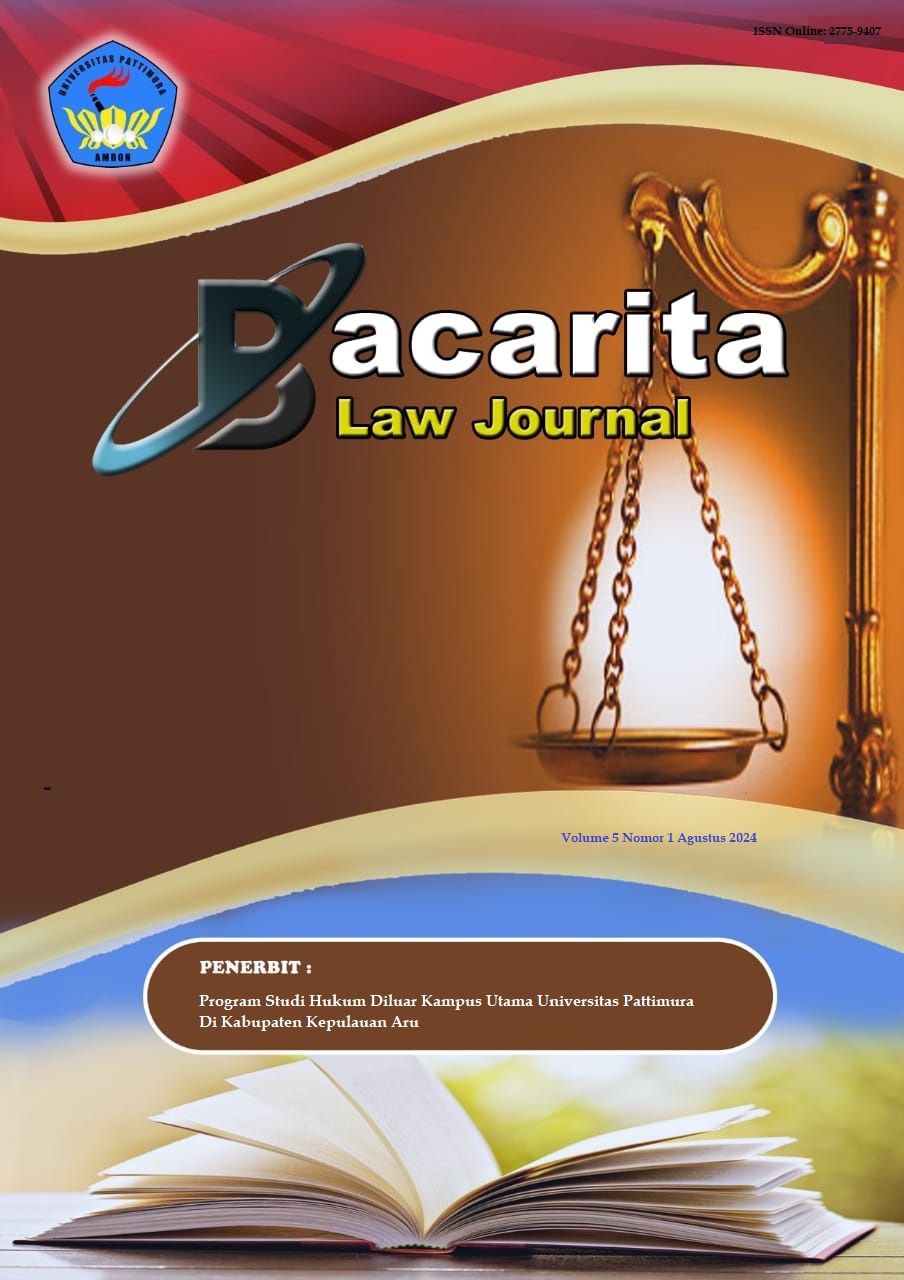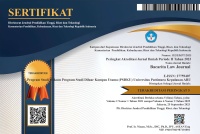Perlindungan Hukum Terhadap Konsumen Pada Transaksi E-Commerce Melalui Pembayaran Cash On Delivery
Abstract
This study aims to analyze the legal protection of consumers in e-commerce transactions with the Cash On Delivery (COD) payment method in Samarinda City. The focus of the research includes consumer legal protection according to Law Number 8 of 1999 concerning Consumer Protection and Law Number 11 of 2008 concerning Information and Electronic Transactions, the effectiveness of legal protection, and obstacles in the implementation of consumer protection. The research method used is empirical juridical with an analytical descriptive approach and data collection techniques through interviews, observations, and questionnaires distributed to e-commerce consumers in Samarinda City. The results of the study show that the existing legal protection is not fully effective because there are still various obstacles, such as low consumer awareness of their rights and weak law enforcement against irresponsible business actors. The Borneo Non-Governmental Consumer Protection Agency, the Samarinda City Police, and SPX Express have an important role in handling consumer disputes. It was found that consumers often suffer losses due to non-conforming or damaged goods, as well as difficulties in the process of returning goods and refunds. This study recommends improving consumer education, strengthening regulations related to COD transactions, and improving coordination between relevant institutions in handling consumer complaints.
Downloads
References
Gulo, Setiawati. “Transaksi E-Commerce Dengan Sistem Cash On Delivery Dalam Perspektif Peraturan Perundang-Undangan Di Indonesia.” Fakultas Hukum Universitas Jambi, 2021. https://repository.unja.ac.id/24144/.
Gupta, Srikant, Pooja S Kushwaha, Usha Badhera, Prasenjit Chatterjee, and Ernesto D R Santibanez Gonzalez. “Identification of Benefits, Challenges, and Pathways in E-Commerce Industries: An Integrated Two-Phase Decision-Making Model.” Sustainable Operations and Computers 4 (2023): 200–218. https://doi.org/10.1016/j.susoc.2023.08.005.
Herlambang, Dian, Susi Indriyani, Renandi Eka Tama, and Rizani Putri. “The Urgency of Legal Protection for Couriers in COD (Cash on Delivery) Transactions.” In Proceedings of the International Conference on ’Changing of Law: Business Law, Local Wisdom and Tourism Industry, 400–414. Springer Nature, 2023. https://doi.org/10.2991/978-2-38476-180-7_44.
Khotimah, Cindy Aulia, and Jeumpa Crisan Chairunnisa. “Perlindungan Hukum Bagi Konsumen Dalam Transaksi Jual-Beli Online (E-Commerce).” Business Law Review 1, no. 1 (2016): 14–20.
Nazar, Mohammad Rafki, Alessandro Timotius Oloando, Muthia Aisha Putri, Cakra Berri, and Maura Tazkia. “Pengaruh Perkembangan Teknologi Terhadap E-Commerce.” Jurnal Pendidikan Tambusai 7, no. 1 (2023): 1817–23. https://jptam.org/index.php/jptam/article/view/5492.
Sulubara, Seri Mughni, T. Saiful Basri, and Fauzan. “Legal Aspects of E-Commerce Agreements in Shopee Platform in The Civil Law Code (Burgerlijk Wetboek).” International Journal of Research and Review 10, no. 6 (2023): 690–99. https://doi.org/10.52403/ijrr.20230683.
Copyright (c) 2025 Shifa Nurdila Putri, Rahmatullah Ayu Hasmiati

This work is licensed under a Creative Commons Attribution-NonCommercial 4.0 International License.
Authors who publish their manuscripts in this Journal agree to the following conditions:
- The copyright in each article belongs to the author, as well as the right to patent.
- Authors are able to enter into separate, additional contractual arrangements for the non-exclusive distribution of the journal's published version of the work (e.g., post it to an institutional repository or publish it in a book), with an acknowledgment of its initial publication in this journal.
- Authors are permitted and encouraged to post their work online (e.g., in institutional repositories or on their website) prior to and during the submission process, as it can lead to productive exchanges, as well as earlier and greater citation of published work.
- Authors have the right to self-archiving of the article (Author Self-Archiving Policy)















